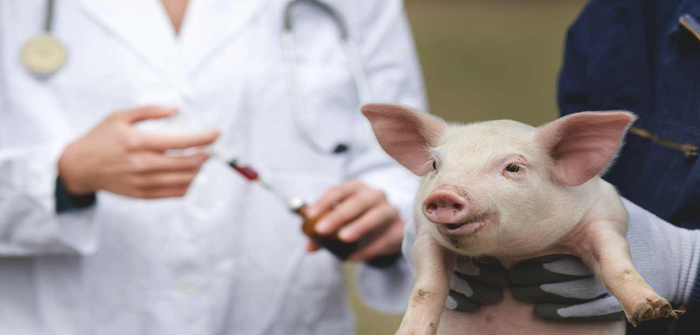Antibiotic stewardship actions supported by the animal health sector are having a positive effect across Europe, says AnimalhealthEurope.
For World Antibiotics Awareness Week, which runs until Sunday, the European association has launched a new webpage, Health for Future Generations, to give an overview of activities and campaigns.
During the course of 2018 AnimalhealthEurope, of which NOAH is a member, surveyed its members to get a clear picture of specific actions being taken at national and European level to promote responsible use of antibiotics and safeguard their future efficacy.
From the UK, NOAH was able to report on the successful launch of its Animal Medicines Best Practice (AMBP) project, which sets out a robust and trusted training programme for all those working in the sheep, dairy, beef and pig sectors.
Launched in July 2018, with an e-learning portal for farmers available through online training provider Lantra, the programme now also provides vets with resources to work with their farmer clients to support the responsible use of antibiotics across UK farms. These resources, such as presentations and workbooks, enable vets to deliver face-to-face training to farmers. Vets can offer farmers a signed Certificate of Training that can be used as a record for Red Tractor assessment.
NOAH chief executive Dawn Howard said: “We are looking forward to spreading the word about this project at this week’s London Vet Show. We invite all vets with an interest in helping to tackle AMR to visit our stand and find out more”.
Other highlights from NOAH include its support for the one-minute animated #BeattheBugs video, aimed at pet owners and created by the Bella Moss Foundation to communicate important messages around the threat of antimicrobial resistance (AMR).
In addition, Ms Howard described NOAH’s latest campaign ‘Blueprint for Animal Health’.
She said: “This campaign sets out to further encourage all sectors to work together closely on a three-step approach:
- STOP disease getting into the animal;
- EQUIP animals to fight disease if they do encounter it; and
- TREAT animals appropriately when sickness is unavoidable.
“These three steps encompass the full spectrum of animal health, from reducing the risk of exposure to infectious diseases, taking preventative healthcare measures and prescribing appropriate treatments, including antibiotics, in case of illness.
“And our association in the UK is pleased to work alongside our colleagues across Europe to continue to tackle this vital issue for us all.”


